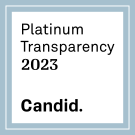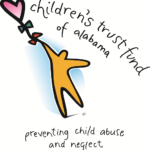What You Should Know About Pregnancy & Addiction
More than 59 newborns are diagnosed with Neonatal Abstinence Syndrome (NAS) in the U.S. every day. NAS includes conditions surrounding an infant’s withdrawal from addictive substances they were exposed to in the womb. Pregnancy and addiction are an unsafe combination for a woman and her baby.
Learn more about why some women use drugs while pregnant, the risks of substance abuse during pregnancy, and symptoms of prenatal drug exposure. Understanding these factors can help combat NAS and other addiction-related pregnancy issues.
Why Do Some Women Use Drugs While Pregnant?
Struggling with substance abuse while pregnant is dangerous and can be life threatening for a woman and her baby. Several risk factors make expecting mothers more likely to use alcohol or drugs while pregnant.
The most common risk factors are depression and anxiety. Substance use disorders and mental health disorders often coincide, resulting in co-occurring disorders. A mental health disorder may increase the risk of a substance abuse disorder and vice versa.
Prevalent co-occurring disorders include depression, postpartum depression, panic disorders, and eating disorders. Unfortunately, these disorders may contribute to substance abuse before, during, and after pregnancy.
Another reason for substance abuse during pregnancy is an inability to quit. The mother may struggle to give up smoking, drinking, or prescription drugs if she uses them regularly. A woman who does not yet know she is pregnant may also drink alcohol, smoke, or use drugs and unknowingly harm her baby.
Risks of Substance Use While Pregnant
Substance use while pregnant can be life threatening for a mother and her newborn. It may also result in a variety of other disorders and dangers. The following are some of the most common substances misused during pregnancy and the effects they can have on the baby.
Tobacco
Smoking tobacco while pregnant is harmful to the mother and the baby. Smoking puts mothers at risk of coronary artery disease, lung cancer, heart disease, stroke, and several other health issues. It can also lead to premature birth or a baby with health concerns such as low birth weight, brain damage, lung damage, birth defects, and Sudden Infant Death Syndrome (SIDS).
Alcohol
Roughly 7% of pregnant mothers use alcohol during the third trimester of their pregnancy. That statistic rises to 10% among mothers over 30. Alcohol is one of the most abused substances during pregnancy, and it can lead to a variety of health issues for the baby.
Alcohol use during pregnancy can lead to numerous Fetal Alcohol Syndrome Disorders (FASDs). Symptoms of these disorders include learning disabilities, hearing or vision issues, abnormal facial features, low body weight, smaller head circumference, low IQ, and more. Abstaining from alcohol during pregnancy can prevent your child from developing the physical and mental symptoms of FASDs.
Marijuana
Smoking marijuana also puts mothers and their babies at risk, as it can lead to low birth weight or stillbirth. A mother who smokes marijuana during pregnancy also has an increased risk of using other substances or smoking cigarettes while pregnant.
Opioids
The opioid epidemic continues to be a major concern across the U.S., and opioid use during pregnancy can be extremely harmful to the child. Commonly used opioids include methadone, heroin, and painkillers. They can lead to NAS, stillbirth, preterm births, and even maternal death.
Combatting Substance Abuse for Healthier Mothers and Babies
The best way to prevent NAS and the other harmful effects of substance use while pregnant is to abstain from drugs and alcohol. For some, substance abuse is due to addiction, which is best treated by professionals at a qualified addiction rehab facility.
Learn more about the risks and symptoms of substance use during pregnancy in the accompanying infographic.
Author bio: Jake Posso is Admissions Director at Vanguard Behavioral Health. Posso is an Arizona native who has battled addiction a number of years ago, there-in he went to treatment himself. Upon cleaning his life up, he has acquired a bachelor’s degree in psychology from Arizona State University and has continued to give back to the recovery community. He has worked every position possible in the treatment industry over the last 10 years.








